Publications
Articles, publications, books, tools and multimedia features from the U.S. Institute of Peace provide the latest news, analysis, research findings, practitioner guides and reports, all related to the conflict zones and issues that are at the center of the Institute’s work to prevent and reduce violent conflict.
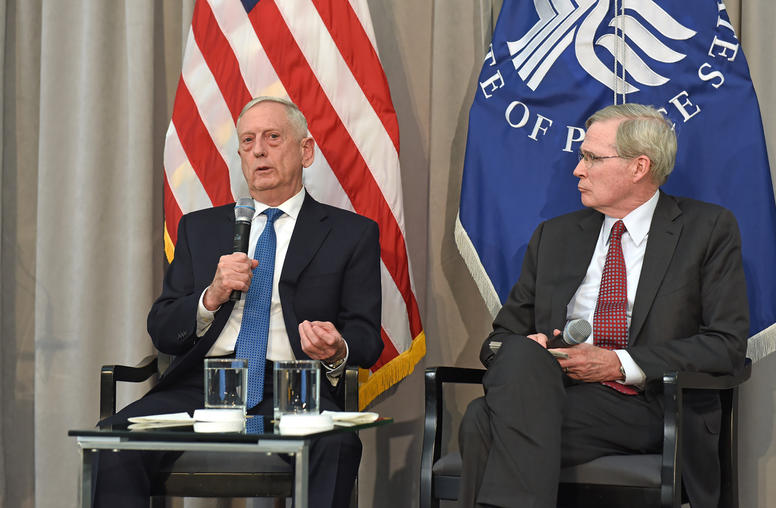
James Mattis: Yemen Needs a Truce Within 30 Days
Secretary of Defense James Mattis yesterday urged combatants in Yemen, including Saudi Arabia and Yemen’s Iran-backed Houthi faction, to negotiate a cease-fire in that war within 30 days while speaking to diplomats, military officers and conflict-resolution specialists at the U.S. Institute of Peace. In a webcast conversation moderated by former national security advisor and USIP Chair Stephen J. Hadley, Mattis also discussed global security challenges facing the United States—from Russia and China, to North Korea—cybersecurity and the need for the developed world to help fragile states improve their governance and address the root causes of extremism.

Mona Yacoubian on the State of Play in Syria
Mona Yacoubian discusses the state of play in Syria ahead of important withdrawal deadlines this week for removing heavy weapons from Idlib province. Yacoubian also discusses the waves of migration forced by the crisis, noting that 2018 has been the worst year to date for internally displaced Syrians; and the recent news that U.S. special operations forces are likely to remain in the country indefinitely to prevent a possible re-emergence of ISIS.
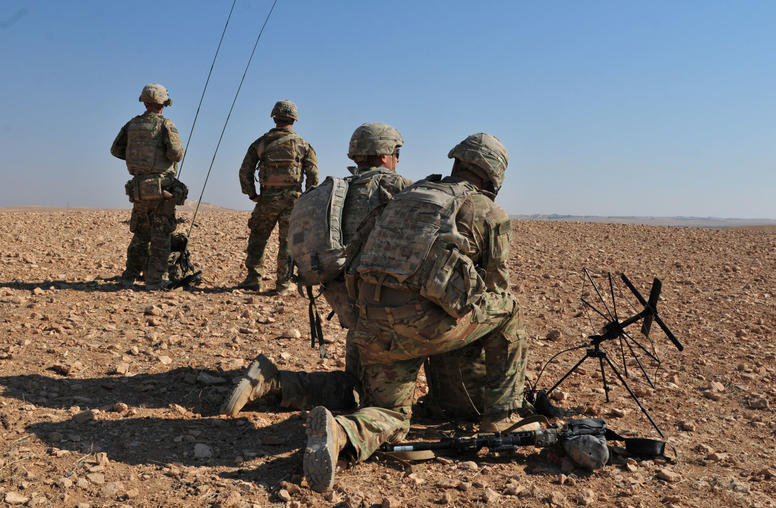
U.S. Policy Toward Syria: Part I
Mona Yacoubian, senior advisor for Syria, the Middle East, and North Africa, testified on September 27 at the House Foreign Affairs Subcommittee on Middle East and North Africa hearing on “U.S. Policy Toward Syria: Part I.”

Mona Yacoubian on Syria
As the Assad regime consolidates power across Syria, Mona Yacoubian says that regime change is increasingly unlikely seven years into the civil war. But, the conflict remains complex, as the U.S. and coalition forces continue to work to eradicate remnants of ISIS and Israel becomes increasingly concerned over Iran’s military presence in neighboring Syria.
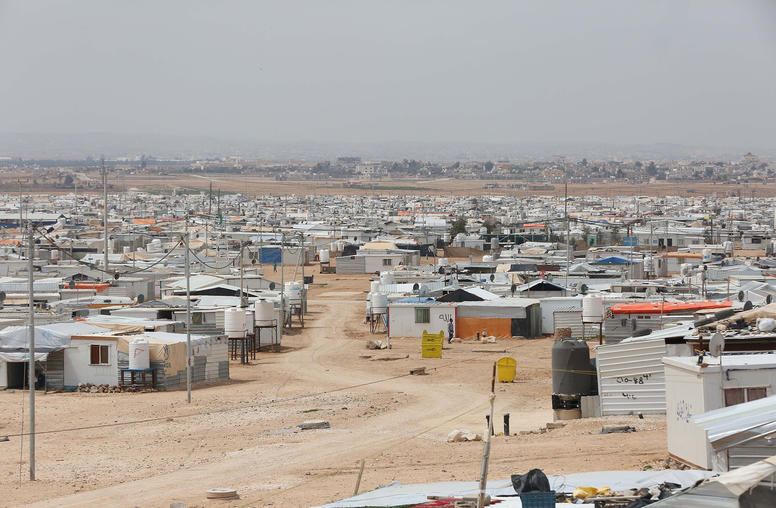
Regime Offensive Aims to Retake Southwest Syria, Displaces Thousands
Over the past two weeks, the Syrian government has embarked on a military offensive across Syria’s southwest, focused on retaking the city of Dara’a. Russia has played a critical role, backing the operations with airstrikes. The United Nations estimates that at least 160,000 Syrian civilians have been displaced by the fighting, and the number could increase as the battle intensifies.
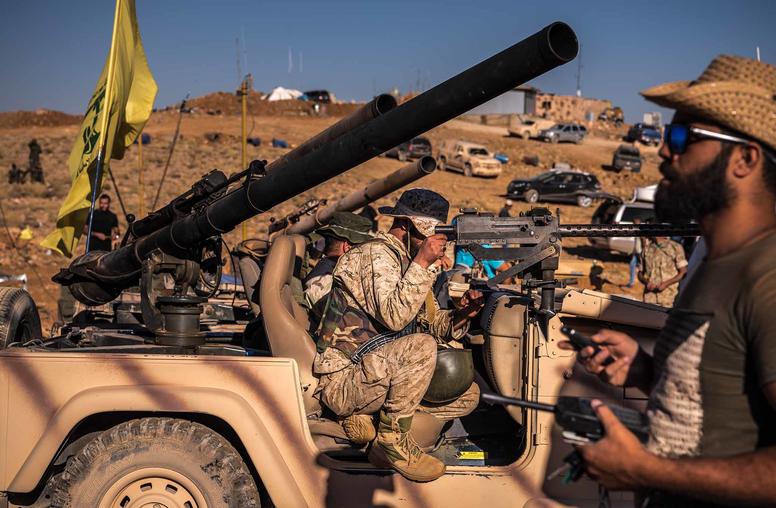
Iran and Israel Are Racing Toward Confrontation in Syria
Ties between Tehran and Damascus have been close since the 1979 revolution, but the relationship deepened after Syria’s civil war erupted in 2011. With the Assad regime’s survival at stake, Tehran doubled down on its support, providing critical military assistance—fighters and strategists—and economic aid estimated to be in the hundreds of millions of dollars.
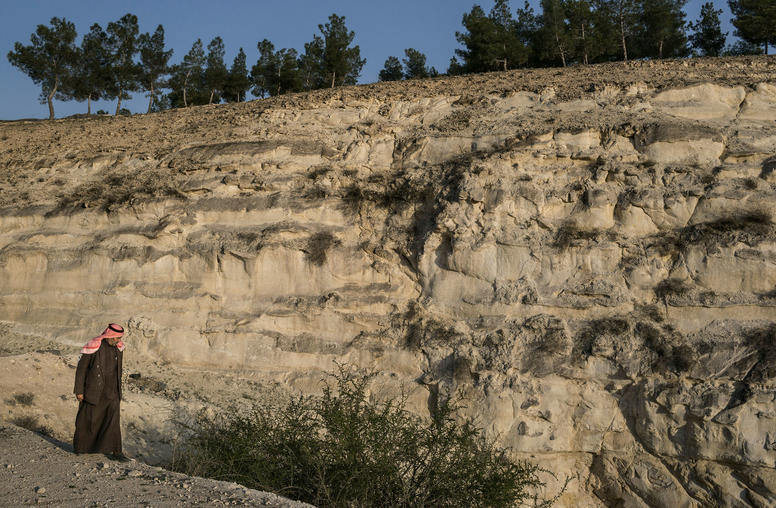
What is Next for U.S.-Turkey Relations?
Relations between the United States and Turkey have come under increasing strain in the past two years over the U.S. role in Syria and Ankara’s strengthening ties with Russia. American support for Kurdish forces battling ISIS has angered Turkey, which sees the cooperation as bolstering Kurdish nationalist elements inside its borders. USIP Board member Eric Edelman, a former U.S. ambassador to Turkey during the George W. Bush administration, and USIP International Advisory Council member Jake Sullivan, who served as Vice President Joe Biden’s national security adviser, provide some insight on the state of Turkish-American relations.

Osama Gharizi on U.S. Objectives in Syria
From Lebanon, Osama Gharizi shares his analysis about the clarity of U.S. objectives after retaliatory missile strikes targeting the Assad regime’s suspected chemical weapons facilities. Gharizi says these strikes sent a signal to Assad and his allies that there are limits to U.S. and coalition intervention in Syria. In turn, these limits strengthen Russia, Turkey, and Iran’s roles as the diplomatic arbiters to negotiate a peace deal. Separately, Gharizi addresses the risks associated with the suggestion of setting up an Arab force in Syria that could create further obscurity in terms of U.S. intent and objectives versus those of Arab countries forming such a force.
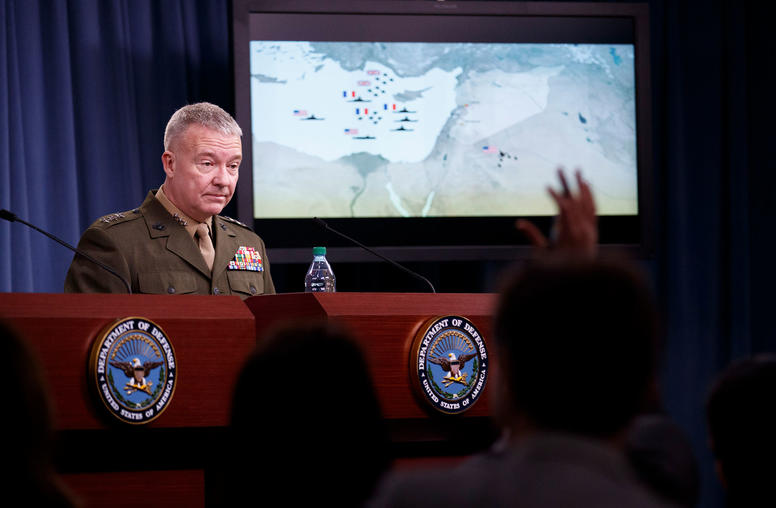
Q&A: After Airstrikes, What’s Next for the U.S. in Syria?
On Friday evening, the United States, together with Britain and France, launched a joint military operation in response to the Syrian regime’s April 7 chemical weapons attack on Douma. The Douma attack left more than 40 civilians dead and several hundred experiencing symptoms of exposure to toxic chemicals. The coordinated airstrikes hit three targets associated with Syria’s chemical weapons infrastructure: a scientific research center, a chemical weapons production facility, and a chemical weapons storage area. Around this time last year in April 2017, the Trump administration launched a unilateral cruise missile strike on the Shayrat airfield following a sarin attack by the Syrian regime on the town of Khan Shaykhoun, which killed more than 90 civilians. U.S. Institute of Peace Senior Advisor for Syria Mona Yacoubian provides some insight into the airstrikes and the challenges that lie ahead.

Mike Yaffe on Iraq and Syria Event
Following USIP’s event “Iraq and Syria: Views from the U.S. Administration, Military Leaders and the Region,” Mike Yaffe provides key takeaways from the panel featuring CENTCOM Commander General Votel, USAID Administrator Green, and Special Presidential Envoy for the Global Coalition to Defeat ISIS McGurk. "Iraq and Syria are complex and starkly different from one another," says Yaffe, "but the key goals are the same: concentrate on defeating ISIS and work by, with, and through local people to stabilize each country."